
-
Find the right food for your petTake this quiz to see which food may be the best for your furry friend.Find the right food for your petTake this quiz to see which food may be the best for your furry friend.Featured products
 Hypoallergenic Small & Mini Adult Dog Food
Hypoallergenic Small & Mini Adult Dog FoodHILL'S SCIENCE PLAN Hypoallergenic Small&Mini Adult dog food with Salmon is complete pet food for adult small dogs 1–6 years old. It's formulated for dogs with delicate skin and stomach, with limited high quality novel protein sources & no grain.
Shop Now Perfect Weight Small & Mini Adult Dog Food
Perfect Weight Small & Mini Adult Dog FoodHill's Science Plan Adult Small & Mini Dog Food with Turkey is a complete premium pet food for adult small dogs from 1 year old that are prone to weight gain or slightly overweight. This deliciously smooth mousse is formulated to deliver the appropriate amount of energy to support weight maintenance in adult dogs.
Shop Now Perfect Digestion Small & Mini Adult Dog Food
Perfect Digestion Small & Mini Adult Dog FoodHill's Science Plan Perfect Digestion Small & Mini Adult Dog Food with Turkey is a complete premium pet food for small breed adult dogs aged 1–6 years. This deliciously smooth mousse is precisely balanced to deliver the appropriate amount of energy and to support digestive health in adult, small breed dogs.
Shop NowFeatured products Oral Care Adult Cat Food
Oral Care Adult Cat FoodHill's Science Plan Oral Care Adult Cat Food with Chicken contains clinically proven kibble technology to reduce plaque & tartar build up.
Shop Now Sterilised Mature Adult Cat Food
Sterilised Mature Adult Cat FoodHill's Science Plan Sterilised Cat Mature Adult Cat Food with Chicken is specially formulated with ActivBiome+ Multi-Benefit Technology. It is a precisely balanced nutrition tailored to meet the needs of mature adult sterilised cats, ages 7+, and to promote graceful ageing.
Shop Now Urinary Health Adult Cat Food with Chicken
Urinary Health Adult Cat Food with ChickenHill's Science Plan Urinary Health Adult Cat Food with Chicken supports the health of the whole urinary system. Suitable for sterilised cats.
Shop Now -
Dog
- Dog Tips & Articles
-
Health Category
- Weight
- Food & Environmental Sensitivities
- Urinary
- Digestive
- Joint
- Kidney
-
Life Stage
- Puppy Nutrition
- Adult Nutrition
- Senior Nutrition
Cat- Cat Tips & Articles
-
Health Category
- Weight
- Skin & Food Sensitivities
- Urinary
- Digestive
- Kidney
-
Life Stage
- Kitten Nutrition
- Adult Nutrition
Featured articles Develop your gut instinct | Hill's Pet
Develop your gut instinct | Hill's PetDigestive disorders can affect any part of the digestive system, from the stomach, small intestine and through to the large intestine.
Read More Virtual Vet Visits: What You Need to Know
Virtual Vet Visits: What You Need to KnowLearn the ins and outs of a televet appointment before you talk to a vet online.
Read More Tips For Mixing Wet And Dry Pet Food
Tips For Mixing Wet And Dry Pet FoodDiscover tips for mixing wet and dry pet food to ensure balanced nutrition and variety for your pet. For comprehensive feeding advice, visit Hill's Pet UK.
Read More -


As a pet parent, one of your jobs is to ensure that your cat drinks enough water to stay healthy. If you notice that your furry friend isn't making regular trips to their bowl, it's time to find out why your cat isn't drinking water.
To paraphrase a popular saying, you can lead a cat to water, but you can't make them drink (or do anything they don’t want to, really). However, once you determine that they aren’t sipping often enough, there are a few ways to get your cat to drink water.
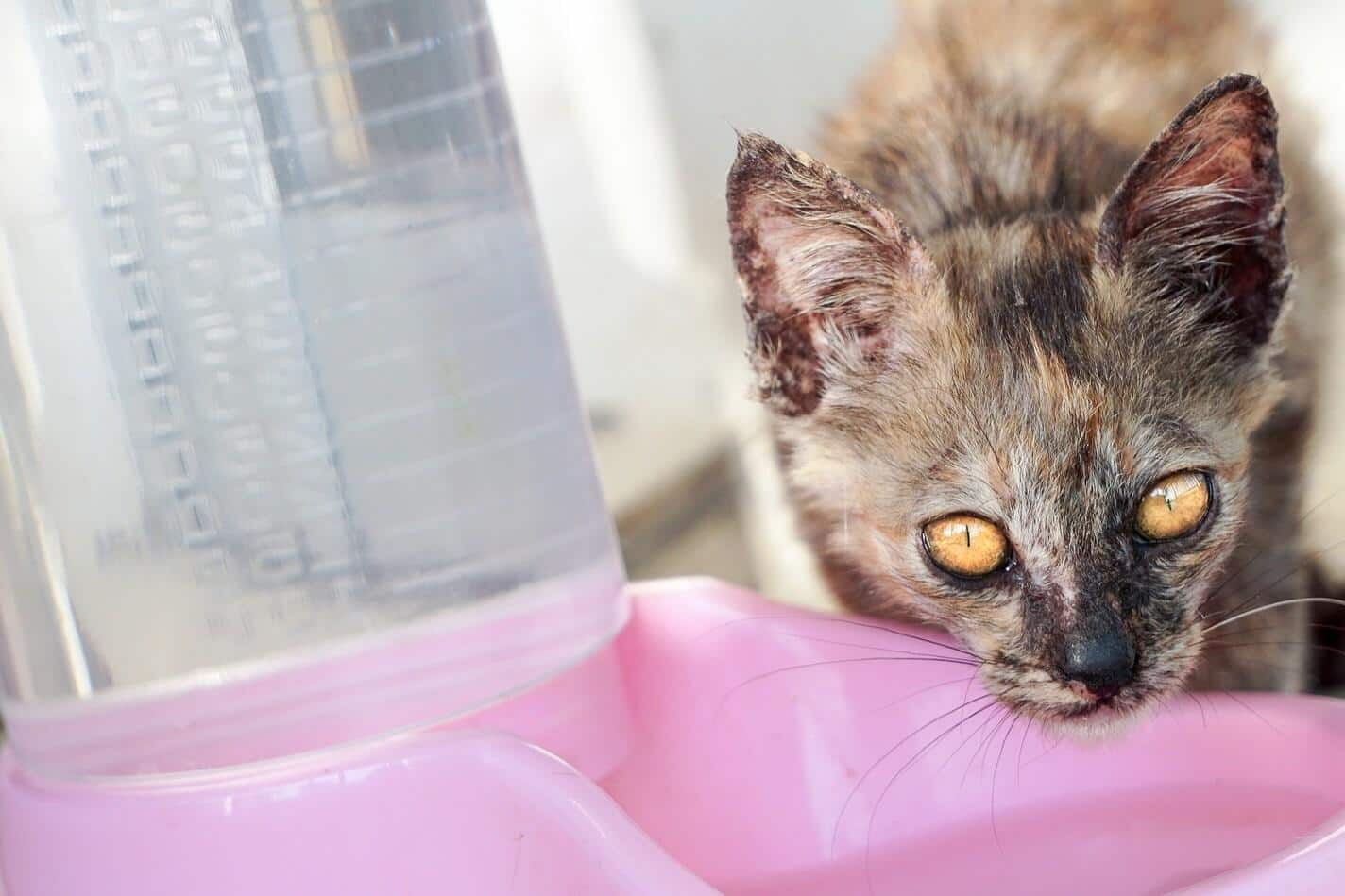
How much water is enough?
In order to stay hydrated, your cat needs around-the-clock access to fresh drinking water. Keep their bowl clean and refill it regularly.
But how much water per day do they actually need? Your cat’s age, weight and activity levels, as well as the weather and their diet, will all make a difference. In general, a rough guide is that most normal cats drink between 40 and 70 ml per kilogram of their bodyweight.
Why is my cat not drinking water?
To avoid the complications of dehydration and encourage your cat to drink more water, you first need to determine why your cat isn't drinking enough. Possible reasons for your cat not drinking enough water include:
- Unclean water. Their water dish may have food, hair, and other debris.
- Location of water. Cats understandably won’t be keen on a water bowl next to their litter tray! They also prefer not to have their water bowls next to their food. Cats have evolved to be suspicious of water near food because it may be contaminated by their kill.
- Noise. Cats may also be put off drinking if their water bowl is in a busy or noisy area of the home.
- Type of bowl. Cats don’t like their whiskers touching the edges of the bowl, while others don’t like the taste of water from plastic bowls. Some also prefer running water sources (e.g. fountains) over static water.
- Number of water bowls. If there aren’t enough bowls for all the cats in the home, your cat might not be able to access enough water without having conflict with another cat.
How do cats drink?
Keep in mind, too, that your feline friend isn't going to lap up a large quantity of water at one time. Unlike your happily slurping dog, the way your cat drinks has its own complex pattern, notes MIT News. Rather than scooping like a ladle, a cat's tongue barely brushes the surface of the water before drawing back up into their mouth. The rapid dipping action creates a tiny column of water that they snap up by closing their mouth before gravity can make it drop back into the bowl. It's difficult to see this line of liquid without capturing it on high speed film since they can complete four of these tongue dips per second — all while keeping their chin dry! Sometimes, cats even daintily dip their paw into the bowl and lick off the water.
So don't worry if your cat isn't gulping down water like a champ and sloshing it all over the place. They have their own delicate way of doing things.


Tasty Tips
How do I know if my cat is dehydrated?
Water is absolutely essential for life and even mild dehydration can quickly become a cause for concern. Just because your cat doesn’t appear to drink much, though, it doesn’t necessarily mean that they are dehydrated. They may be getting water from their diet and they might also be drinking somewhere outside that you are unaware of. That said, because dehydration can be dangerous, it’s best to be vigilant and know what signs to look for.
Causes of dehydration
A cat can become dehydrated by not drinking enough water, by urinating more than they’re ingesting, or, in extreme situations, because of vomiting or diarrhoea. Health conditions like kidney disease and diabetes can also lead to dehydration, says The Veterinary Nurse. Your cat also has an increased risk if they are elderly and living with other medical problems, such as renal or thyroid disease.
Signs and symptoms of dehydration
One easy way to identify dehydration in your cat is to check for ‘stiff’ skin, or "tenting." Place your cat on your lap and gently lift up the skin on the back of their neck. In a hydrated cat, the flap of skin will snap back into place as soon as you let go. If it stays up in a fold or is slow to fall back, then your cat is dehydrated and needs veterinary attention.
As dehydration becomes more severe, you may also see:
Weakness
Loss of appetite
Panting
Drooling
Elevated heart rate
Weak pulse
Dry or sticky gums
Trembling
Excessive urination or infrequent urination
Contact your veterinarian right away if your cat shows any of these signs. A cat with these signs may be missing critical electrolytes such as sodium.
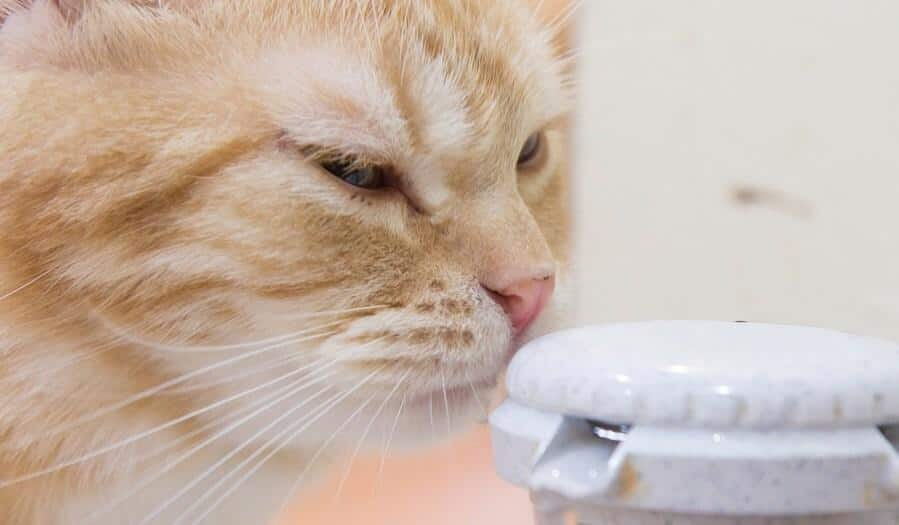
How can I get my cat to drink more water?
If there are no medical reasons your cat is not drinking water, then you may have to dig into your bag of cat tricks. As we mentioned at the beginning, there are quite a few ways to encourage your cat to drink water.
Location. Make sure your cat’s water is in a quiet area of the home, away from their litter tray and food bowl.
Number of water stations. You should have at least one more bowl than you have cats. These should be placed away from each other too, so there is never conflict over this precious resource.
Bowl characteristics. Choose wide bowls made from metal, ceramic or glass and keep them topped up. Your cat may also be one of many that prefers running water, so consider a cat fountain, too.
Diet. Feeding wet food is one of the easiest ways to get water into your cat. If your cat has dry food, see if they will eat it soaked in a little warm water. Some cats won’t like the texture, but some will.
If you’re ever worried that your cat isn’t drinking enough or is drinking too much, talk to your vet. Changes in thirst and dehydration can be early signs of numerous health problems, such as kidney disease and diabetes. The sooner you pick up on these conditions, the better your chances of being able to get treatment or diet change started. Your vet would always rather be safe than sorry.
If your cat is healthy, following the tips above will help make sure they stay happily hydrated.


Christine O'Brien is a writer, mom, and long-time cat parent whose two Russian Blues rule the house. Her work also appears in Care.com, What to Expect, and Fit Pregnancy, where she writes about pets, pregnancy, and family life. Find and follow her on Instagram and Twitter @brovelliobrien.
Related products

Hill's Science Plan Urinary Health Adult Cat Food with Chicken supports the health of the whole urinary system. Suitable for sterilised cats.

Hill's Science Plan Oral Care Adult Cat Food with Chicken contains clinically proven kibble technology to reduce plaque & tartar build up.

Hill's Science Plan Sterilised Cat Mature Adult Cat Food with Chicken is specially formulated with ActivBiome+ Multi-Benefit Technology. It is a precisely balanced nutrition tailored to meet the needs of mature adult sterilised cats, ages 7+, and to promote graceful ageing.
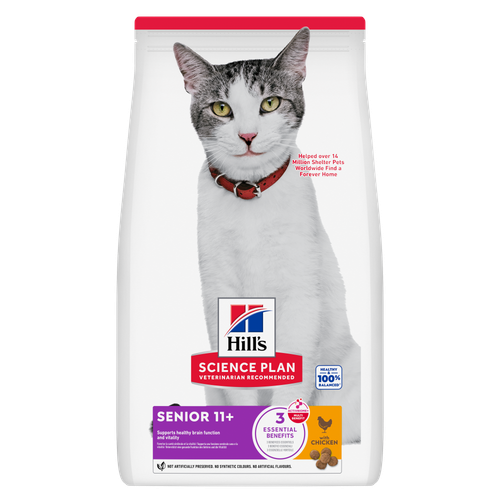
Hill's Science Plan Senior Cat Food with Chicken is a complete pet food, specially formulated with ActivBiome+ Multi-Benefit Technology.
This food supports healthy aging during the golden years. Contains a special ingredient blend to help keep older cats agile, more alert & interactive.
Related articles
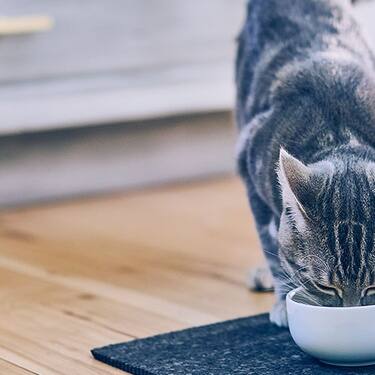
Good nutrition is about the right balance of nutrients. Learn more about health issues when feeding a cat food that has an improper nutritional balance from your friends at Hills Pet Nutrition.
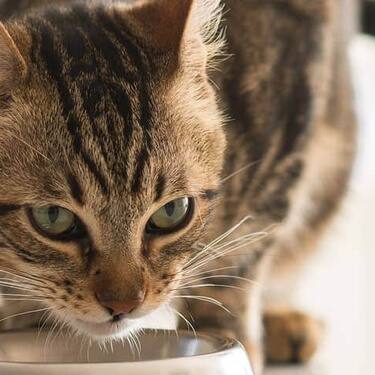
Discover what you can do to spot and support a sensitive cat stomach. See what routines and food you can implement to help your cat be happy and healthy.
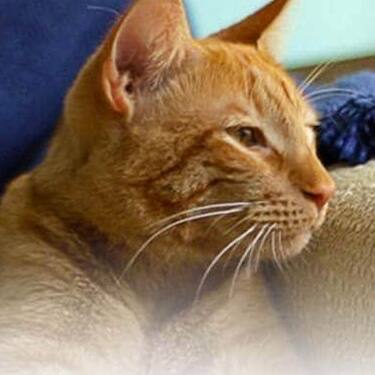
Find the right Hill
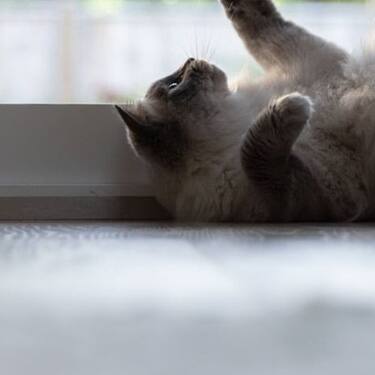
Feeding time can be a wonderful bonding opportunity for you and your cat. Find out how to make the most of it and create a healthy habit with HIll's Pet UK.

Put your cat on a diet without them knowing
Our low calorie formula helps you control your cat's weight. It's packed with high-quality protein for building lean muscles, and made with purposeful ingredients for a flavourful, nutritious meal. Clinically proven antioxidants, Vitamin C+E, help promote a healthy immune system.
Put your cat on a diet without them knowing
Our low calorie formula helps you control your cat's weight. It's packed with high-quality protein for building lean muscles, and made with purposeful ingredients for a flavourful, nutritious meal. Clinically proven antioxidants, Vitamin C+E, help promote a healthy immune system.

